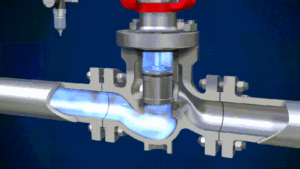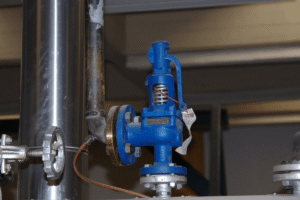Experiencing a bathroom fixture leak can be more than just a minor annoyance. While it may start as a small drip, if left unchecked, it can lead to significant problems. Understanding the causes, impacts, and solutions of bathroom fixture leaks can help homeowners address these issues effectively and efficiently.

Understanding Bathroom Fixture Leaks
A bathroom fixture leak is any unintended water escape from components such as sinks, toilets, showers, and faucets. These leaks can be caused by various factors ranging from worn-out seals to corroded pipes. Identifying the source and nature of the leak is crucial for implementing the right solution.
Common Causes of Bathroom Fixture Leaks
Several elements contribute to bathroom fixture leaks. Old or damaged seals can deteriorate over time, leading to leaks. Additionally, corrosion in pipes and fixtures can cause water to escape. Inadequate installation of fixtures is another common cause, often resulting in improper sealing and subsequent leakage.
Signs of a Bathroom Fixture Leak
Detecting a bathroom fixture leak early can save you time and money. Look for leak signs in ceiling, such as water stains, musty odors, or increased water bills. These indicators suggest a hidden leak that needs immediate attention.
Impacts of Bathroom Fixture Leaks
The consequences of ignoring a bathroom fixture leak can be severe. Water damage can lead to structural issues, mold growth, and increased utility bills. Mold, in particular, poses health risks and can exacerbate allergies and respiratory conditions. Addressing leaks promptly is essential for maintaining a safe and healthy home environment.
Structural Damage
Water from a bathroom fixture leak can seep into floors and walls, causing structural damage. This can weaken the integrity of your home, leading to costly repairs. It’s vital to address leaks before they compromise your home’s structure.
Mold and Mildew
Leaking water creates a perfect environment for mold and mildew to thrive. These fungi can spread quickly, affecting indoor air quality and posing health risks. Regular inspections and prompt leak repairs can prevent mold growth and its associated health hazards.
Solutions for Bathroom Fixture Leaks
Fortunately, there are effective solutions for fixing bathroom fixture leaks. Routine maintenance and timely repairs are crucial. Here are some methods to address these leaks:
Regular Inspection and Maintenance
Conducting regular inspections of your bathroom fixtures can help identify potential leaks before they become serious problems. Check seals, gaskets, and connections for signs of wear and tear. Replace any damaged components promptly to prevent leaks.
Professional Plumbing Services
For complex leaks, hiring a professional plumber is advisable. They have the expertise to diagnose and fix leaks efficiently, ensuring long-term solutions. Professional services may involve replacing pipes, resealing fixtures, or installing new components.
DIY Fixes for Minor Leaks
For minor leaks, DIY fixes can be effective. Replacing worn-out washers, tightening loose connections, or using tile sealant can stop small leaks. Always follow manufacturer instructions and safety guidelines when attempting DIY repairs.
For more detailed guidance on addressing bathroom leaks, visit common bathroom leaks.
Preventing Future Leaks
Prevention is key to avoiding bathroom fixture leaks in the future. Implementing preventive measures can save you from the hassle and cost of repairs.
Quality Installation
Ensure that all bathroom fixtures are installed correctly by professionals. Proper installation reduces the risk of leaks and extends the lifespan of your fixtures.
Regular Upgrades
Consider upgrading old fixtures and pipes with modern, leak-resistant alternatives. Newer models are designed to minimize leaks and offer improved efficiency.

FAQ Section
How can I identify a bathroom fixture leak?
Look for signs such as water stains, increased water bills, or musty odors. Regular inspections can also help identify potential leaks.
What should I do if I find a leak?
Address the leak immediately to prevent further damage. You can attempt DIY repairs for minor leaks or hire a professional plumber for complex issues.
How can I prevent future leaks?
Regular maintenance, quality installation, and timely upgrades can help prevent future leaks. Ensure all fixtures are installed correctly and conduct routine inspections.
This article contains affiliate links. We may earn a commission at no extra cost to you.



